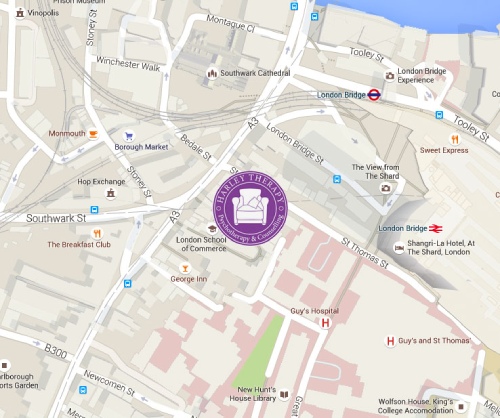A comprehensive, combined assessment for Autism and ADHD will provide you with clarity about whether you have traits of these or other conditions so that you can have accurate treatment choices for your individual circumstances.
ADHD and Autism overlap
Neurodiversity has historically been chronically underdiagnosed. Testing for ADHD and autism in adults is a nuanced speciality and two people with the same diagnosis might have different characteristics and experiences.
Often, individuals have more than one neurodevelopmental condition. For example, approximately 70% of people with ADHD also have features of Autism, and about 80% of people with Autism have features of ADHD. Also, there are higher rates of certain mental health disorders amongst neurodiverse individuals.
A combined assessment delivers your neurodevelopmental and psychological profile in a joint assessment. This can lead to tailored treatment for your Autism and ADHD diagnoses.
Benefits of the Combined ADHD & ASD Assessment
- Understand what you have been struggling with and get the information you need to move forward
- Receive a full, informative and clear picture of your neurodiversity component and any secondary mental health issues
- Gain clarity on any previous misdiagnosis, such as a learning difficulty or anxiety disorder.
Meet our Consultant for the Combined Autism & ADHD Assessment
Dr Maria Daves
Consultant Counselling Psychologist and ADHD Coach
Learn about Dr Maria Daves Contact or Enquire TodayDr Maria Daves has over 20 years’ experience of working therapeutically in neurodiverse (ASD, ADHD) and mental health settings. She carries out a full comprehensive neurodevelopmental assessment for ADHD and ASD with a view to making a diagnosis. A treatment plan would be devised, which may include a referral to an in-house psychiatrist for medication and ongoing treatment.
A combined ADHD & ASD assessment is achieved by an extended clinical interview, which takes in aspects of neurodevelopmental difficulty as well as an exploration of psychological problems. In combination with a limited number of evaluated and reliable psychometric tests, the heart of this assessment is a 5 hour detailed interview over three appointments (2 x 2 hours and 1 x 1 hour), conducted face to face or online, which aims to assess more significant aspects of neurodiversity and any contingent comorbidity in the psychological field.
The report produced gives an accurate and relevant assessment of these different levels of comorbid functioning. An individual who completes the neurodevelopmental assessment with Dr Daves is likely to end up with a clear picture of their neurodiversity component and their mental health issues, which can then lead to a tailored treatment.
The fee is £3,500. Dr Daves requests payment on the day the booking is made to secure your appointment. Information on follow-up fees can be found here.
The 400-minute neurodevelopmental comorbidity assessment will consist of the following:
- Adult ADHD Self Report Scale (ASRS-v1.1)
- Core-10.
- Auditory Processing Difficulties Checklist.
- CAARS Observer.
- DISCO/ADOS
- Extensive clinical interview to screen for neurodiversity and any contingent comorbidity.
- Conners long scale completed and scored.
- Symptom profile and ADHD index scores discussed.
- Discussion of types of treatment and if appropriate an onward psychiatric referral
After this appointment, if you wish, we can provide you with availability of specialist ADHD and ASD psychologists for weekly sessions. You (and your GP if details provided) can expect to receive the completed report within 14 days after the appointment date.
View the Experts
How to book your appointment
Call us now on 0345 474 1724 OR book online
All practitioners are qualified and accredited with reputable professional associations.
Meet the Experts
Enquiry Form
To make an enquiry, please fill in this confidential form. Our dedicated administrators will review your needs and get back to you as soon as possible.
How does ADHD present in adults?
Adult ADHD traits can include difficulties in the regulation of concentration, being easily distracted, procrastination, poor processing of information and a tendency towards hyper focus or defocus depending upon the level of interest in a task.
An adult with ADHD may also experience physical restlessness, usually a pumping motion of the lower limbs and fidgeting in the fingers.
A final group of ADHD traits are related to impulsivity, which may present as a tendency to vocalise and interrupt, having a dysregulated appetite and/or problems with impulsive spending.
How is ADHD diagnosed in adults?
A diagnosis of ADHD does not require the presence of all the symptoms listed above. For example, you may be identified as having a ‘combined type’ if you exhibit both hyperactivity and impulsive behaviour, or as ‘predominantly inattentive’ if distraction is your main trait. What’s important is how the traits you experience impact your ability to function in various areas of your life.
What are the traits of Autism Spectrum Disorder (ASD)?
Autism Spectrum Disorder (ASD) is an umbrella term for a wide range of neurodiverse profiles that share traits including difficulties in interpersonal relationships, a tendency to find it hard to gauge the social content of a conversation or communicate feelings effectively, rigidity of action, a tendency to stick with the same patterns of behaviour regardless of the environment, a tendency to overfocus on one subject and resistance to change.
Autistic people may have sensory processing difficulties, including an exaggerated emotional reaction sometimes to sight, sounds, bright lights or textures. Increasingly it is being recognised that some autistic people also have what is called Rejection Sensitive Dysphoria, which is an overreaction to perceived comments, which can lead to ruminative and negative thinking.
How commonly do ADHD & ASD diagnoses co-occur?
Individuals often have traits of both Autism Spectrum Disorder and ADHD. Approximately 70% of people with ADHD have traits of Autism, and approximately 80% of autistic people have features of ADHD.
What is vertical comorbidity in the context of neurodevelopmental disorders?
Neurodevelopmental disorders also attract what is known as vertical comorbidity. This refers to a higher rate of secondary mental health issues in neurodiverse individuals. These can include Personality Disorders (particularly Borderline Personality Disorder), Adjustment Disorders, problems with self-esteem, depression and Bipolar 2 Disorder.
Why is a comorbidity assessment important for individuals with ADHD and Autism?
Given the high incidence of overlap between ADHD, Autism and other mental health challenges, a comorbidity assessment is the most useful next step. It provides a comprehensive and informative overview of an individual’s neurodevelopmental and psychological profile, helping in the effective management of these conditions.





